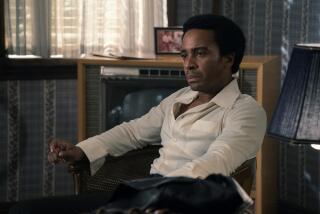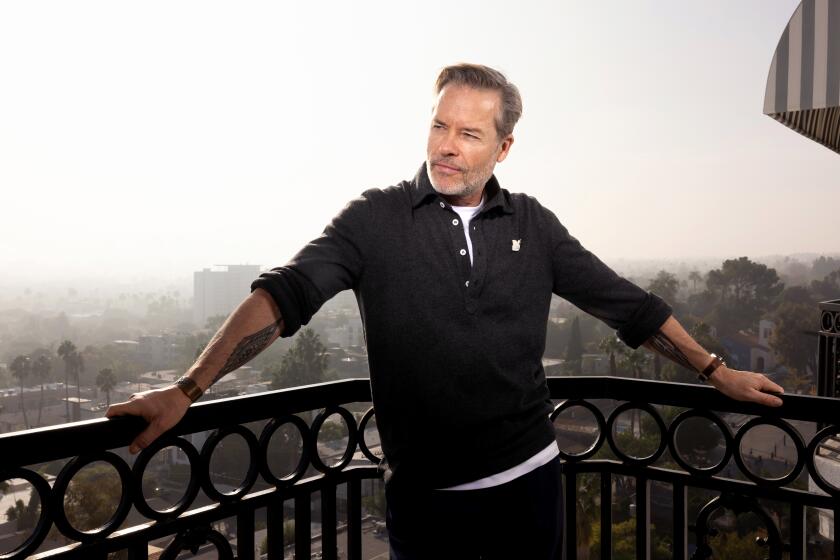Review: Tupac, Biggie and corruption in the LAPD still add up to a stale ‘City of Lies’
- Share via
The shooting deaths of the rappers Tupac Shakur and the Notorious B.I.G. have been examined in-depth in books, magazines, documentaries, and even in a 10-part 2018 cable TV docudrama, “Unsolved.” This is now such well-traveled ground that it’s hard to tell the story in a fresh way. That may be why the film “City of Lies” feels stale — though to be fair, since this long-shelved movie was shot in 2017, it may have been more revelatory three or four years ago.
Director Brad Furman and screenwriter Christian Contreras — adapting journalist Randall Sullivan’s controversial nonfiction report “LAbyrinth” — pack a lot into “City of Lies.” The movie is at once a true-crime mystery, an exposé of a corrupt police force and a study of the friendship between the ex-LAPD Det. Russell Poole (Johnny Depp) and the rogue reporter Jack Jackson (a fictionalized version of Sullivan, played by Forest Whitaker). The film is framed by conversations between Poole and Jackson about the Notorious B.I.G. case set in 2015, setting up multiple flashbacks.
Depp gives a refreshingly restrained performance as Poole, a real-life cop who quit the force when he realized he wasn’t going to be able to follow his investigation to its inevitable end. Sullivan based much of “LAbyrinth” on his interviews with Poole, who contended the LAPD covered up the truth about the Tupac and Biggie shootings because an honest accounting would’ve revealed that several policemen were involved.
In addition to Depp and Whitaker, “City of Lies” features fine supporting turns by Shea Whigham and Shamier Anderson, playing lawmen who turn on their own brotherhood. Toby Huss is especially excellent as Poole’s partner Fred Miller, who in an impassioned speech decries the ways that successive generations of bad cops have sapped the credibility of anyone who genuinely tries to protect and serve.
But that speech — like a lot of the film’s more electrifying moments — never connects into a single clean, compelling narrative. The script’s flashback structure allows for a lot of shocking scenes of cops committing crimes; but what ultimately results is like a clearinghouse of bad LAPD behavior in the 1990s, much of it unrelated to the Notorious B.I.G. case.
These anecdotal reflections are interesting — and perhaps necessary. But they don’t add up to much. As the piles of Biggie-related material has proven, it’s perhaps impossible to cover everything this story is really about in under two hours. “City of Lies” makes an honest effort but doesn’t get the job done.
'City of Lies'
Rated: R, for language throughout, some violence and drug use
Running time: 1 hour, 51 minutes
Playing: Starts March 19 in general release where theaters are open; available April 9 on VOD
More to Read
Only good movies
Get the Indie Focus newsletter, Mark Olsen's weekly guide to the world of cinema.
You may occasionally receive promotional content from the Los Angeles Times.










